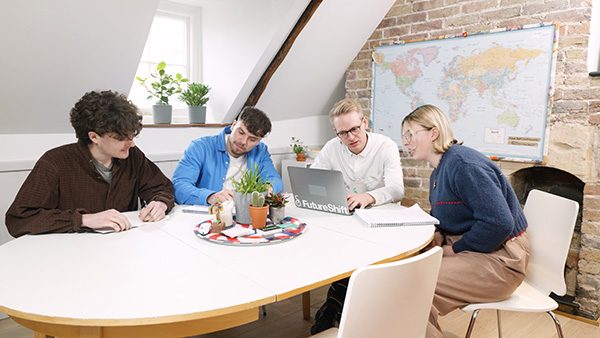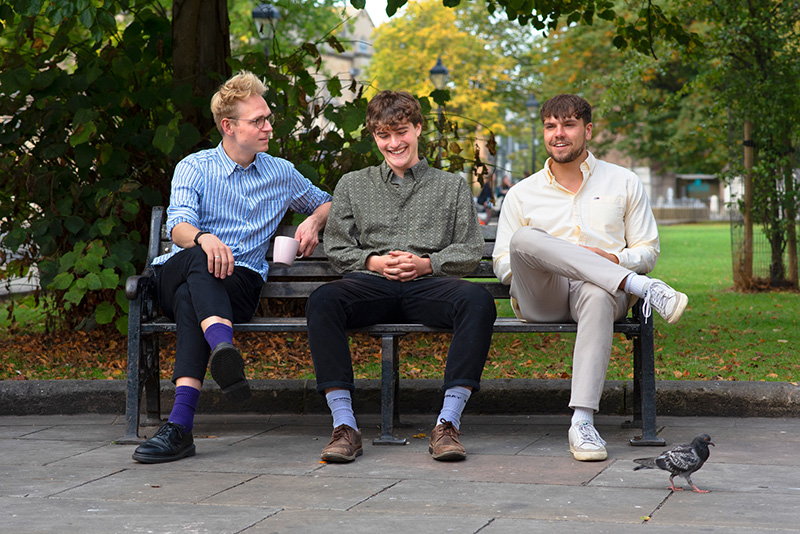Happy International Women’s Day to a few of my favourite women
Okay. First thing’s first, let’s get the elephant out of the room and back to the savannah where she belongs. We’re a team of predominantly white middle-class males writing a post for our blog (which is kind of for-profit) about women. I’m very aware of shallow corporate IWD posts, but this certainly isn’t going to stop me shouting about some badass women.
Just in case you don’t read this until the end. If you do one thing, please check out Invisible Army, a project giving a voice to those who are too often denied the recognition they deserve and consider donating here.
–
Today I want to talk about three of my favourite women. First we have Tina and Carina, founders of Invisible Army (fyi, Tina is my mum). Second, is Simone Weil (pronounced ‘VAY’), an early 20th-century philosopher, all round badass, and a giant source of inspiration for me of late.

Simone Weil (left), and Tina (centre) and Carina (right) fighting for truth.
I’m going to start with a short bit about Simone Weil who, among many other insights that speak a deep truth about people and society, gave us the idea of “a need for roots”. It’s going to be very difficult not to bring more of her thinking into this entry – but I will try my hardest. When you keep yourself at a safe distance from everything that’s going on in the world, it prevents you from being able to see the world in a truly clear way. The women I’m writing about today understand this truth and have incorporated it into their lives in a beautiful and incredibly meaningful way. In the eyes of Simone Weil, people in modern society often suffer from a lack of what she calls the “needs of the soul”. These psychological needs of the soul are just as important as food and shelter to live a flourishing and dignified life. Without them we are starving and unable to live fully.
One of the needs of the soul Weil talks about is the need for roots. Just like a tree, the roots of a person are essential for a healthy existence. Simone Weil believed the conditions created by modern society are such that people are not at all set up to develop these healthy root systems. Consequently, many people will fail to lay down a strong and stable network of roots – an essential part of themselves.

People live their lives as part of a society, and one’s relationship to this society informs who we are. This relationship between the individual and the collective is interdependent, meaning that you actually exist partially through your connections with your surroundings. The connections to the human world around you are your roots. This brings me to Tina and Carina, who have decided not to keep themselves at a safe distance from the world around them in order to tell us an uncomfortable truth about the way that our society is organised. Together, Tina and Carina have spent the last few years telling the story of the 40,000 unpaid carers in Bristol. The project tells the story of members of an army, fighting selflessly to ensure the wellbeing and dignity of loved ones and family members with conditions that require constant attention and care.

An installation representing the 40,138 unpaid carers in Bristol with origami flowers, and pictures and stories in the background.
This army, despite being over 100 times larger than the UK military, is largely invisible, kept that way by a society that values practically every other profession over the essential care of others. I categorise unpaid care work as a profession because it is most certainly a full time job just like any other. If hard work was really equivalent to one’s paycheck at the end of the month, this group of people would be amongst Bristol’s wealthiest. Imagine that, where the larger houses with bathrooms big enough for people to receive dignified personal care and sit-down showers were reserved for families with chronic illnesses and not your private school-educated investment banker. I can see Simone Weil smiling from her grave when I think about how Carina and Tina fight for Bristol’s unpaid carers’ right to roots. The project involves Tina taking portraits of unpaid carers and the receivers of care while Carina records their lives, worries, passions and dreams in writing.
Simone Weil would see unpaid carers in the UK today as people who have been denied the opportunity to lay down a solid set of roots. This is due to their social isolation, made worse by a lack of institutional support for unpaid carers, making it difficult to participate meaningfully in society. An unglamorous profession by society’s standards, care work is rarely seen for its real value, above anything money can describe. The fact that this work is largely unpaid other than sub-living-wage financial support is also at the heart of the issue here. Sadly, monetary value is the primary signal of something’s worth. You can see the problem here. Invisible Army lays roots far and wide through their respectful exposure of the lives of unpaid carers. Roots are created in all directions; between the general public, often blind to the unfair treatment of unpaid carers by the governments they elect into power, and the unpaid care community.
Roots are the bedrock of a resilient, equitable and compassionate society. Without them life lacks richness and depth. I believe, now more than ever, that the problems at the top of our social agenda can be solved by stronger, deeper roots. To Carina, Tina and Simone, I say thank you for your decisions to seek truth, and expose uncomfortable realities. I am grateful for women like yourselves that inform and challenge my incomplete view of the world. We don’t have much to offer apart from my unwavering support and hopefully some exposure to the investment bankers who have a little left over at the end of the month which they may consider donating to Invisible Army’s just giving page.
–
For more on Simone Weil and the need for roots, listen here.



